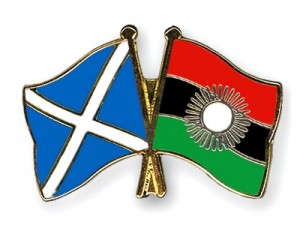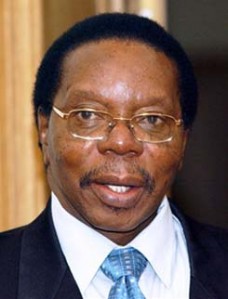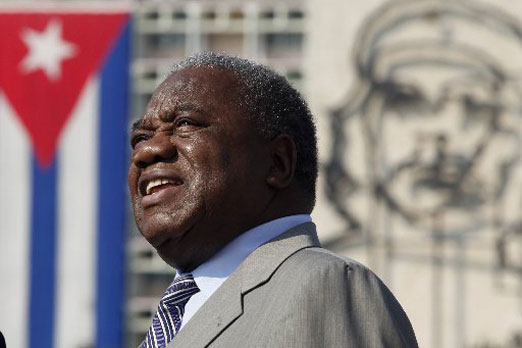By Michael MacLeod
With cuts biting hard into frontline services, finances in Scotland’s public sector have rarely been so stretched.
While tackling poverty here in Scotland remains a priority – £175 million is being thrown at the problem – there is still money set aside for others.

Right now 19 charities and organisations across the country are rolling out plans to spend new funds totalling of £5,629,584 to help people in Malawi, a country regarded by the government as our ‘sister nation.’
The bond was established in 2005 when a co-operation agreement was signed between the two countries to work together on broad areas including health and education.
Among those who successfully campaigned to have a say in how some of the latest funding round will be spent is the overseas disability charity CBM UK.
Playing a key role in securing the funding and planning the next steps is Karen Garrott, the charity’s Scottish Country Manager.
Born in Glasgow and now based at CBM’s office in Edinburgh, Karen recently spoke to STV to share the incredible story of how her disabled son inspired her career.
Now she uses her insight into disability to help vulnerable people abroad. CBM’s three-year project aims to get to the heart of one of Malawi’s biggest problems – poverty among disabled people.
Karen and her colleagues at the charity have been granted £317,297 to ‘expand the participation of persons with disability’ in Malawi.
She has experienced first hand the difficulties people with disabilities encounter in Malawi, having visited previously.
In the coming months she will return to the country with CBM’s project partners Enable Scotland and The Mental Health Foundation.
They will tap into the expert local knowledge of Fedoma – a collective of organisations aiming to advocate and lobby for people with disabilities.
Karen says the funding will be vital if disability organisations in Malawi are to more effectively lobby at local and national level for access to health and education services. She says:
“The project will allow disabled peoples’ organisations in Malawi to work more closely with the Malawian government to ensure a strengthened civil society and improved quality of life for people with disabilities.
“I am delighted that CBM along with our partners in Scotland have the opportunity to help make a difference to the lives of people with disabilities and their families in Malawi.”
Her colleague Stefan Dofel, who is based in Malawi, adds: “The reality for most people with disabilities in Malawi is that they are excluded from basic services due to lack of awareness and technical knowledge amongst communities and local government.
“This project will greatly assist in overcoming these barriers.”
The funding will be specifically aimed at the districts of Lilongwe, Salima and Nkhotakota, as shown in our map.
The project organisers estimate up to 380,000 people with disabilities in these districts will be reached by representatives.
They fear most if not all are being excluded from society, limiting their access to health and education services – not to mention having a say in how they could be better involved.
The sharing of knowledge in advocacy is key to the project’s success. Karen is keen to stress that she and her colleagues only want to spend a minimal amount of time in Malawi to ensure funding is spent where needed.
They’ll get the ball rolling and help others to maintain the momentum through training.
That’s where Enable Scotland and The Mental Health Foundation come in. Under CBM’s management, they will develop an advocacy tool kit and ‘Training of Trainer’ curriculum for Fedoma to then roll out across Malawi.
It’s a complex process, so local input is central to the project. Helping to channel that Scottish expertise into the areas needing it most will be Mussa Chiwaula, the Executive Director of Fedoma. He said:
“Malawi has a very sound policy framework meant to promote disability mainstreaming in all national development activities.
“But the major challenge is that it still needs to be translated into practice so that it brings meaningful change to the lives of persons with disabilities in the country.
“This project will greatly assist in building the capacity of the disabled people and their organisations so that their voices are heard and their issues get truly embedded among community and local government development activities.”
Fiona Hyslop, Scotland’s External Affairs Secretary, said she feels a responsibility to continue making aid available from the Scottish Government’s International Development Fund.
“Scotland has a special relationship with Malawi, whose people are some of the poorest in the world,” Hyslop said.
”The recent appointment of Joyce Banda as Malawi’s first female President is testament to the fact that women in Africa are making progress socially, economically and politically.
“We in Scotland are aware of our responsibilities to the wider world.
“That is why I have protected Scottish Government spending on international development, helping to make a real difference to some of the world’s poorest and most vulnerable people.”

.jpeg&w=60&q=100&h=60)





.jpeg&w=60&q=100&h=60)




